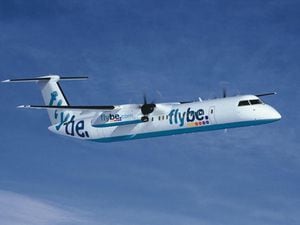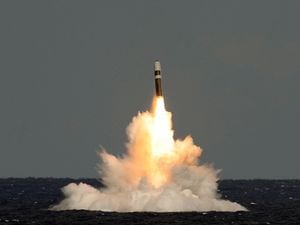Express & Star comment: Something needs to be done for nation's airlines
Britain once had an airline industry that was the envy of the world. No more. A number of airlines have fallen victim to rampant competition in a sector where further casualties may still arise.

Flybe is the latest to run into difficulty, having previously been bailed out. While the airline continues to operate as normal it faces a challenge to stay afloat. The question marks surrounding its long term survival can only lead to further harm as confidence drains away and passengers are reluctant to book.
Flybe is not the only airline to struggle in recent times. BMI, Thomas Cook and Monarch have all fallen victim to increased costs, decreased demand, the falling value of sterling and more. And while government intervention might not be the answer – at the General Election, the principle of nationalising industries was roundly rejected – something has to be done.
The Government is committed to spending ever-increasing sums of money on the HS2 rail line. The stated aim is to drive investment to different parts of the UK as the nation becomes increasingly connected. Investing in our infrastructure is investment for the future. It allows business to take place more efficiently, it provides easier links for commuters and it makes the UK a more attractive proposition for money-to-burn tourists.
And yet while tens of billions are being spent on HS2, a perfectly serviceable airline that was saved a year ago for a paltry £2.8 million is facing ruin. The nation’s priorities seem askew.
Flybe is a commercial entity and has to stand on its own two feet. And yet it has a wider role to play in the national wellbeing. When airlines go bust, there is huge inconvenience and upheaval for many customers.
When uncertainty creeps in, the many commuters who need to connect between the Midlands, the North, London and the rest of Europe have to change their plans. Orders are lost, our ability to trade is diminished and inefficiency creeps in.
So, while Flybe must be viable if it is to be saved, we should also consider the wider economic issue that is at play.
+++
Those who use rail services won’t be in the least bit surprised to hear that one of our operators has been fined for poor performance.
Anecdotal evidence of late arrivals, inefficient service and a low standard of customer service aren’t difficult to find among the hard-pressed commuters and leisure passengers who have the misfortune to use the service.
Transport for Wales now faces a large fine for its service shortcomings.
Meanwhile, the boss of West Midlands Trains is leaving amid calls for passengers to log their list of complaints.
Our services are clearly in need of dramatic improvement. Britain needs to have a fully integrated rail system as it looks to get traffic off the roads and opt into a system that is less damaging to the environment. It can’t do that, however, when rail stock is in poor condition and when services aren’t up to scratch.
Transport For Wales has been hauled over the coals. West Midlands Trains has many questions to answer. Both must now begin a programme of improvements so that regular users can enjoy the standards that their ticket prices demand.





